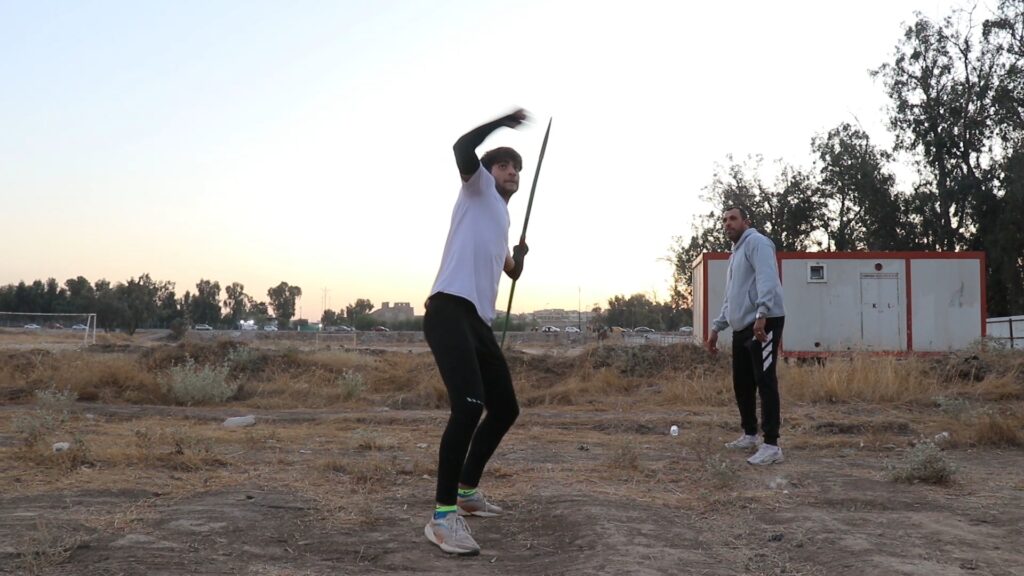
Young Athletes in Mosul Train on Dusty Fields, Call for Support as Iraqi Clubs Championship Nears
Seek better sports infrastructure
Despite challenging conditions, young talent in athletics are rising in Mosul
NINEVEH — With no dedicated track since the Mosul University stadium went under renovation six years ago, athletes and coaches are forced to train on dusty fields as they prepare for the Iraqi Clubs Championship in Erbil, which started on Thursday.
Many athletes work part-time jobs before training sessions to represent Iraq, drawing inspiration from the achievements of past champions from the city. Trainers are calling on the Ministry of Youth and Sports, particularly Minister Ahmed Mohammed Al-Mubarqa, to support these athletes by providing a proper track and safe training grounds, away from the hazardous conditions of dirt fields.
Bashar Othman Mohammed, coach for Iraq’s national athletics team and the Mosul Municipality Club, told 964media, “I consider Mosul the crown jewel of athletics; it has produced champions since the 1970s and 1990s.”
He highlighted Mosul’s distinguished athletes, such as Asian champions Haitham Nadim and Thamer Younis, along with renowned coach Yassin Taha. Reflecting on better days, he said, “In the past, we had the Mosul University field open 24/7 for our athletes. Today, we have only dusty fields, as the university stadium has been under construction for six years.”
Despite these obstacles, Othman continues to train on these fields, though he admits, “These fields cause far more injuries than tartan tracks.” He noted that the club boasts three national team coaches and more than seven national athletes, including runner Ayham, who competed in the Arab Championships in Kuwait.
“We secured second place in the first phase and third in the second phase of the league and are heading to the championship in Erbil. We aim for a top finish against 30 clubs across Iraq,” Othman said, adding that many young athletes are ready for national team selection.
Yousef Thamer, an 18-year-old athlete with the Mosul Municipality Club, said, “I work in the mornings and train in the evenings.” After finishing work at 3 p.m., he rides his bike to the field for 4 p.m. training sessions. “I’ve competed in the long jump, and I’m also a decathlete,” he added.
Thamer, who plans to compete in the upcoming Iraqi Clubs Championship, noted the sport’s unique requirements. “This sport demands more equipment than soccer—special shoes, gear, and training equipment like javelins. But we lack these basics. We hope our sport can succeed here in Nineveh, so we can represent Iraq internationally.”
Mohammed Tariq, a former international athlete and referee, described the Mosul athletics community as close-knit and supportive. “We’re a family here, always encouraging our coaches and athletes to produce the next generation of champions,” he said.
“Mosul is home to many athletes on national teams, and thankfully, after the liberation [from ISIS], the city is regaining its rightful status.” However, he stressed the need for more fields. “Right now, players are training on dusty fields. With better facilities, the sport would flourish,” he remarked, pointing out that winter rains often halt training and disrupt athletes’ preparation.
